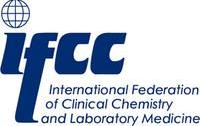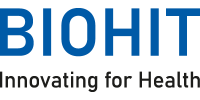QUALIFYING CRITERIA
- Any professional, either in training or in practice, may submit an abstract for poster presentation.
- The applicant must be the first author and must confirm that the work (or a clearly defined part of it) is their own.
- Applicants are encouraged to consider how their work contributes to EDI and sustainability values.
HOW TO SUBMIT
Step 1: Create an account
You must create an account on the Oxford Abstracts platform before accessing the submission form.
Step 2: Complete the submission form
- Submit your abstract using the Abstract submission form
- The abstract must be no more than 300 words.
- During submission, you can indicate whether you would like your abstract to be considered for:
- Conference Prizes
- Clinical Case Oral Presentation
- Medal Award
- Poster Spotlight (lunchtime Poster Showcase)
Step 3: Check the guidance before submitting
Please review the following before submission:
- Poster aceptance guidelines
- Poster abstract writing guidelines
- Poster guidelines
- Clinical case presentation
Further information on the Medal Award is available on LabMedUK Awards page.
Deadline
9:00 am, 20 February
HOW ABSTRACTS ARE REVIEWED AND ACCEPTED
- All abstracts are anonymised before review.
- Each abstract is reviewed by at least two reviewers from:
- The Conference Scientific Programme Working Group, or
- The LabMed Scientific Affairs and Clinical Practice Committee.
- Reviewers assess suitability for presentation at the conference.
- A selection of posters from each day will be shortlisted for Poster of the Day, voted for by conference delegates.
If accepted:
- Your poster will be allocated a specific day for display.
- Presenting authors must be registered delegates and available at their poster during the lunch break.
- Poster abstracts presented at the conference will be published in the conference proceedings in the Annals of Clinical Biochemistry.
PRESENTING REMOTELY AT LABMEDUK
LabMed is committed to providing equal opportunities for members to present their work.
- If personal circumstances prevent you from attending in person, you may still submit an abstract for consideration for the Clinical Case Prize or Medal Award.
- Submit your abstract via the website as usual.
- If shortlisted for an oral presentation, contact [email protected] to discuss your requirements.
Examples of personal circumstances include:
- Disability, long-term or medical conditions (physical or mental health)
- Caring responsibilities that limit travel or attendance
To ensure the financial viability of in-person meetings, evidence of circumstances may be requested (e.g. medical confirmation, DLA/PIP, or carer status).
All presenting authors must still be registered conference delegates.
POSTER OF THE DAY
- Awarded on Tuesday and Wednesday of the main conference.
- Voted for by conference delegates.
- Winners announced at the closing ceremony.
To be eligible:
- Email a PDF of your poster to [email protected]
- Deadline: 9:00 am, Monday 28 April
CLINICAL CASE PRIZE
- Reviewed by the Clinical Science Review Committee and the session chair.
- Each submission is reviewed by at least two reviewers.
Selection criteria include:
- Clear clinical presentation
- Appropriate test results and interpretation
- A case from the past two years in which the author was actively involved
- Preference for:
- Multi-disciplinary cases
- Rare cases
- Unusual presentations of common conditions
Eligibility and process:
- The author must be a member of the Association working in laboratory medicine.
- Shortlisted authors will present during the interactive clinical case session.
- Winners are announced at the closing ceremony.
- Oral case abstracts are not displayed as posters, but will be published in the conference proceedings.
- The session winner is voted for by the audience.
MEDAL AWARD
- Reviewed and shortlisted by an Award Committee including senior Association officers and an EDI champion.
- Shortlisted authors will:
- Present orally during the Medal Award session
- Produce a poster displayed on both Tuesday and Wednesday
- Oral presentations and Q&A are scored by the judging panel.
- Winners are announced at the closing ceremony.
POSTER SPOTLIGHT
- Held during the lunch break on each main conference day.
- Highlights posters aligned with conference themes.
- Selected authors give a 5-minute electronic poster presentation.
Key points:
- No monetary prize
- Selected authors notified at least six weeks before the conference
- A PDF poster must be submitted by 9:00 am, 28 April
A physical poster is also required for display
POSTER AND PRESENTATION PRIZES
All prizes are presented at the closing ceremony.
- Medal Award: £300 (winner), £150 (runner-up)
- Clinical Case Oral Presentation: £100 (winner), £50 (runner-up)
- Poster of the Day: £100
If an author has more than one abstract shortlisted for oral presentation in the same category, they will be asked to select one to present.
FURTHER QUESTIONS
If you have any questions about poster abstracts or the submission process, please contact:
[email protected]
Abstract writing tips
- Most test names are not proper nouns and should not be capitalised. Likewise, only proprietary names of drugs should be capitalised, for example: Epilim and valproate.
- Litres should be a capital L.
- It is unusual to include a reference in the abstract.
- Any number at the beginning of a sentence must be in words.
- Nonstandard abbreviations are a useful device to save words but they should always be defined in the first instance.
- Do not use bullet points in an abstract; use full stops or semi colons to separate lists of results.
- Always use a colon instead of a dash.
- There should be a space between a number and a unit (but not in 4oC).
Abstract topics
- Electrolytes
- Bone Disease & Calcium Metabolism
- Laboratory data and informatics
- Management, Quality Improvement and Innovation in Laboratory Medicine
- Quality Assurance
- New networks and services
- Miscellaneous
- Disorders of muscle and articular Disease
- Analytical techniques
- Point of Care Testing
- Diversity & Inclusion
- Environmental Sustainability
- Molecular Genetics
- Immunology
- Haematology and disorders of the haem pathway
- Microbiology and Infective Disorders
- The Brain, CNS, Psychiatric and Neurological Pathology
- Paediatrics and IEM
- Renal Disease
- Hepatic Disease
- Toxicology, TDM and poisoning
- Oncology
- Lipids
- Cardiovascular Disease
- Commercial Services
- Diabetes and Endocrinology
- Gut, Nutrition, Trace Elements
Under the auspices of:









